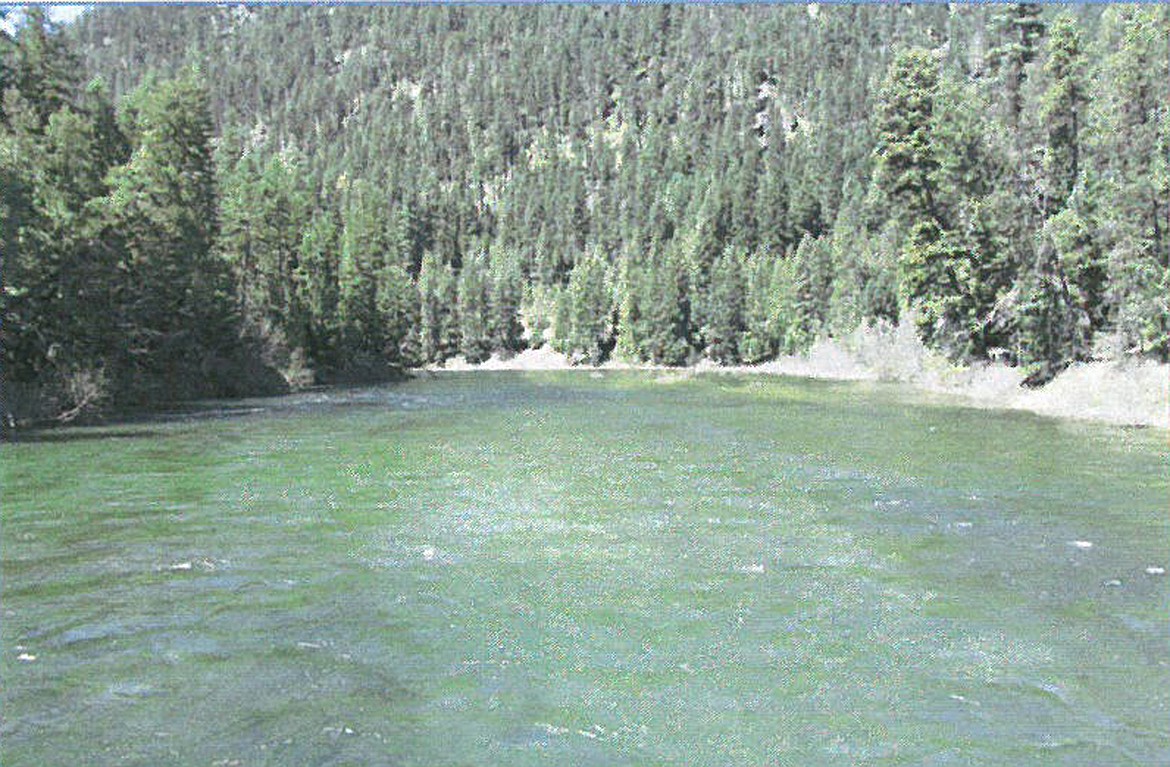Priest Lake siphon bill passes Senate committee
The Senate Resources & Environment Committee passed a bill Monday that would require legislative approval of any future structures built to control the flow of water out of Priest Lake.
Sen. Scott Herndon, R-Sagle, said the bill is needed to reassert the authority of the Legislature and the governor over Priest Lake Outlet Dam, which is managed by the Idaho Department of Water Resources.
"We want to make sure that if any changes are contemplated, by any agencies of the state of Idaho, that that goes through the legislative process – and we know how rigorous this process is," Herndon said.
The Idaho Department of Fish and Game has considered building a gravity siphon at the lake outlet to pull water from deep in the lake to cool the Lower Priest River, which gets too warm during parts of the summer to support certain fish species.
Attorney Norm Semanko spoke on behalf of the Committee to Stop the Priest Lake Siphon.
"They're concerned about a new straw being put in around the dam that's not regulated by the water resources agencies, but by a fisheries agency," Semanko said.
The concept is similar to a siphon that was built at Sullivan Lake in northeastern Washington.
"Water rights are regulated by the Department of Water Resources," Semanko said. “We don't need a new structure put into the system – certainly not without legislative approval – that can confound and confuse that system."
IDFG and the Kalispel Tribe have studied the gravity siphon concept over the past decade using environmental mitigation funds from dams on the Clark Fork River upstream of Lake Pend Oreille.
"The Department of Fish and Game has at least shown a historical interest in bypassing this legislature," Herndon argued, saying his constituents are concerned that work could begin on the project using the same regional dam mitigation funds.
"This proves the necessity for this bill,” Semanko said. “There's already been tens of thousands of dollars spent to do studies on this."
Several Bonner County residents along the Priest River offering remote testimony contested the claim the outlet dam has had no effect on river conditions since its construction in the early 1950s.
“Priest River has consistently gone downhill,” fisherman Brian Hooker said. “History does not show that river has always been a warm-water river.”
Other stakeholder groups said they felt it was too early in the process for the legislature to put its finger on the scale for or against the siphon project.
"We feel like this discussion has just started, to figure out ways that we can improve the river,” said Michael Gibson, Idaho Field Coordinator for Trout Unlimited. "With this legislation in place, it sort of shoots that in the foot.”
Kyle Maki, North Idaho Field Representative for the Idaho Wildlife Federation, questioned whether it would be the role of the legislature to approve specific irrigation projects in other parts of the state.
“We feel a bit of friction at the idea that, after a consensus-driven process, local stakeholders would have to ask Treasure Valley and East Idaho lawmakers for a go-ahead," Maki said.
Jonathan Oppenheimer, external relations director for the Idaho Conservation League, called the bill a legislative end-run around collaborative efforts to address the lake and river basin locally.
“You in the Legislature don't want to have to resolve every single issue,” Oppenheimer said.
Herndon and Semanko disagreed, pointing back to legislative history in 1927 establishing water rights for Lake Coeur d’Alene, Lake Pend Oreille, and Priest Lake held in trust by the governor “for scenic beauty, health, recreation, transportation and commercial purposes” for all Idahoans, above irrigation or power generation uses.
"This kind of legislation does not limit the ability to collaborate. It helps focus the collaboration, understanding that it does require state legislative approval at the end of the day," Semanko said.
Herdon reiterated that the bill does not ban additional outlet control structures but requires the legislature and the governor to approve one via a new statute.
"Once a collaborative determines if there is a solution to improve what we're doing at Priest Lake and on the Priest River, then I'd be the first person to carry that bill," Herndon said.
The committee voted 6-3 in favor of the bill. It must pass the full Senate before moving to the House.
Ayes (6): Sen. Van Burtenshaw, R-Terreton; Sen. Jim Guthrie, R-McCammon; Sen. Lori Den Hartog, R-Meridian; Sen. Mark Harris, R-Soda Springs; Sen. Doug Okuniewicz, R-Hayden; and Sen. Geoff Schroeder, R-Mountain Home.
Nays (3): Sen. Carrie Semmelroth, D-Boise; Sen. Ron Taylor, D-Hailey; and Sen. Ben Adams, R-Nampa.

